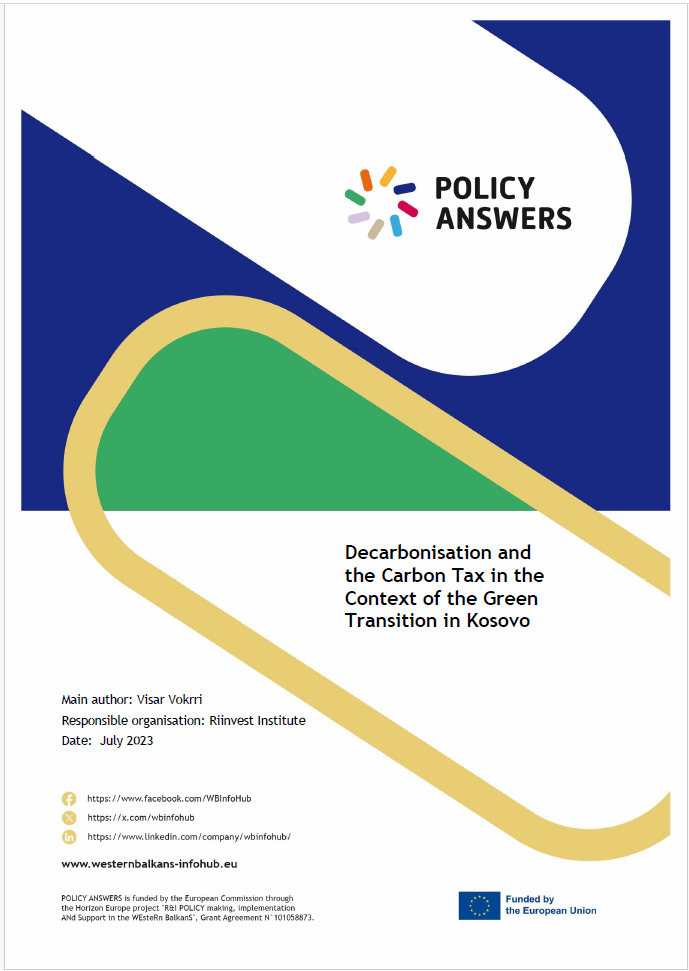This POLICY ANSWERS Brief was prepared in July 2023 by Visar Vokrri and published by the Riinvest Institute.
This document is part of the ‘Green Talks’ debate series within the Green Action Space platform, a joint initiative of the Riinvest Institute and the Kosovo Foundation for Open Society (KFOS), as well as activities within the ‘POLICY ANSWERS’ project implemented by the Riinvest Institute. The content of this publication is the responsibility of the Riinvest Institute.
Climate change and its environmental degradation have prompted developed countries to launch a global initiative to limit global warming to 1.5°C above pre-industrial levels, with a highly ambitious target of net zero greenhouse gas emissions by 2050. In this context, Europe has become a global leader in efforts to address and mitigate the consequences of climate change. In this regard, the focus is on ambitious initiatives related to the decarbonisation of technological processes in the manufacturing industries and other economic sectors. With a strong commitment to transitioning to cleaner and more sustainable energy sources, European countries have embarked on a transformative journey that not only addresses the urgent issue of global warming but also serves as an inspiring example for the rest of the world to follow. Therefore, the European Union (EU) has pledged to significantly reduce greenhouse gas emissions, reduce dependence on fossil fuels, and multiply the share of renewable energy in their energy mix.
Fiscal instruments through the carbon tax have been one of the earliest policies used by various countries around the world in their efforts to reduce carbon emissions. It is worth noting that Scandinavian countries have applied carbon taxes since the early 1990s. Currently, around 40 different countries apply a carbon tax, with the highest rate being in Uruguay, at around 137 USD per ton of carbon emitted. In the Western Balkans, currently only Bosnia and Herzegovina, Montenegro, and Albania have implemented various measures in the form of taxes, mainly on fossil fuels. According to the Energy Strategy of the Republic of Kosovo*12022-2031, Kosovo will make preparations for the establishment of a carbon pricing system by 2025. The anticipated revenues from carbon taxation, according to this strategy, are planned to create a fund that will promote investments in renewable energy sources, support consumers in need, and other measures aimed at a just transition.
A key pillar of Europe’s decarbonisation strategy has been the rapid expansion of renewable energy sources. Wind, solar energy, and hydropower plants have shown extraordinary growth, with countries investing in large-scale projects and stimulating the deployment of clean technologies. Additionally, significant steps have been taken towards decarbonisation goals in energy efficiency and energy storage. Europe has now become a hub for innovation in renewable resources, driving advancements in offshore wind farms and solar energy storage. Furthermore, building renovation programs, stricter energy efficiency standards for appliances, and initiatives promoting sustainable transport have been implemented across the continent. These efforts not only reduce emissions but also result in significant cost savings for businesses and households.

